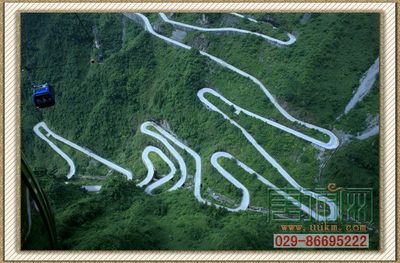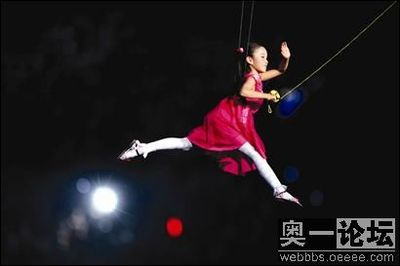With the globalization in the whole world, how to introduce more FDI is becoming a severe problem for a country. In China, the important thing is to improve the national competitiveness itself, which will attract more FDI coming into China. This paper discusses some measures or policies according to Dunning’s (1988) eclectic paradigm and Porter’s (1990) “diamond” system.
1. Introduction
Foreign direct investment (FDI) and multinational enterprises (MNEs) have contributed to China’ economy largely that brings China huge capital, advanced technology, critical managerial skills and international marketing channels (Fu, 2000). FDI has positive significance to the development of China’s economy. Thus, it is important for China to improve its national competitiveness to attract FDI. This article adopts Dunning’s (1988) eclectic paradigm and Porter’s (1990) “diamond” system of national advantage to demonstrate how the government can do to attract foreign companies.
2.Strategies that China can do to attract FDI
According to Dunning (1988), the eclectic paradigm has three parts: ownership advantages, location advantages and internalization advantages (OLI). Once a firm has OLI advantages, it can invest overseas. For a country, the factors of location advantages should be considered in the first place. While in order to facilitate discussion, location advantages will be interpreted first. Dunning (1988) argued that country should have specific location advantages to attract FDI that arise from using resource endowments or assets that are tied to a particular location and that a firm can find valuable to combine with its own unique assets. The factors include number and quality of factors of production, infrastructure, size of market, government policies concerning FDI flows and trade barriers, investment incentives, language, the psychic distance between the home and host country, etc. Porter (1990) stated that the most important role of government is the one creating and increasing factors of production, which include human resources, basic science, economic information, and infrastructure. The reason a country can be chosen as a destination of foreign capital, is that an enterprise can develop its competitive strategy, core products, production processes, and the key technology there. This country is also a stage where the home country of foreign investment can integrate its advantages toward the global development (Porter, 1990).

2.1 For location advantages
In order to attract FDI, China should attach great importance to the education and training firstly. According to Porter (1990), the standard of education and training need to be consistent with developed countries’ to make sure that students have competition ability in the most advanced fields. To improve the current education system is the most important task. Education not only needs to consider the humanities and society, but also the needs of the economy. Another important point is that the teaching of foreign languages and foreign culture is more significant with globalization today. Secondly, China need to enhance the development of the infrastructure construction, which include transportation, logistics, and supply & telecommunication facilities. Advanced infrastructure can reduce cost and is a necessary condition to introduce modern technologies (Porter, 1990). Thirdly, China could open channels of capital. Porter (1990) believed that economic development needs abundant low-cost capital, reasonable configuration and efficient investment through the banking system and other capital markets. The capital of low cost can encourage mass investment to improve productivity and keep the persistent investment in a floundering economy. It is attractive for Foreign Investment Enterprises (FIEs). Then, China should avoid monopoly by few big buyers in certain industries. Porter (1990) assumed that amounts of buyers will create a better environment for firm’s innovation and improvement. When the number of customer is huge who all have the demand of the products with different ideas and pressure of competition, market information flows quickly which will create innovation to enhance the competitiveness. This will make FIEs easier and more willing to enter to China’s market. Next, when China want to bring in an industry, government should assist the related and supporting industries to be competitive. Porter (1990) argued that when upstream industries are competitive, operation of the downstream industries will be more rapid, quick and efficient. Similarly, if downstream industries lack ability of applying relevant industries efficiently, the industries will not be competitive just depend on the competitiveness of upstream industries. If China has competitive related and supporting industries, FIEs is more willing to enter into this industry. And the other way round, MNEs alliance can be helpful to connect the upstream industry with downstream industry to build production facilities, and at the same time MNEs affiliates also can afford technical assistance and business management training to both upstream firms and downstream firms (Markusen & Venables, 1999;Javorcik, 2004; Girma & Gong, 2008 cited in Deng, 2011:19).
2.2 For ownership advantages
There are also two factors about Dunning’s (1988) eclectic paradigm except location advantages. Dunning (1988) stated that ownership advantages is that what home firms have but host firms can hardly get in terms of both tangible and intangible assets including ownership of scarce resources, patent rights, brand recognition and reputation, perse products, management techniques, marketing skills and special equipment. China should encourage domestic firms cooperate with FIEs and reduce procedures and steps of setting up MNEs. Influence of enterprise joint between one in home country and one in host country on ownership advantages is that FIEs enter into the host country’s market more easily as well as costs and risks of FIEs in host country become lower. Porter (1990) assumed that, for enterprises, improvement and innovation, finding a better way of international competition and continuously improving product and process are the only way to keep the industry’s competitive advantage; for countries, if the country can provide such an environment where enterprise can keep its competitive advantage, once the enterprise benefits, the country will benefit in the end.
2.3 For internalization advantages
According to Dunning (1988), internalization advantages mean that when enterprises transfer assets through internalization to foreign subsidiaries, they can keep advantages rather than licensing the profitable production processes out. Because the home country’s FDI incentive structure and cooperative form of organization are different from those in host country, China should adjust incentive structure in international standard. Ge (2006) stated that the incentive measures should include fiscal Incentives (e.g. tax reduction), financial incentive (e.g. Credit subsidies) and market incentive (e.g. priority of contracting). When the FIEs adapt the incentive structure in host country, they can give play to the internalization advantages to integrate resources and markets effectively and are more willing to enter to China.
3.Summary
This essay demonstrate how China can enhance its production factors, improve its investment environment and take suitable measures or policies to attract excellent FDI according to Dunning’s (1988) eclectic paradigm and Porter’s (1990) “diamond” system of national advantage. To conclude, China should strengthen the education system and infrastructure construction, open capital market, prevent the market monopoly, improve the competitiveness of the related and supporting industries, enhance the cooperation between domestic firms and FIEs, and adjust the incentive structure.
 爱华网
爱华网


